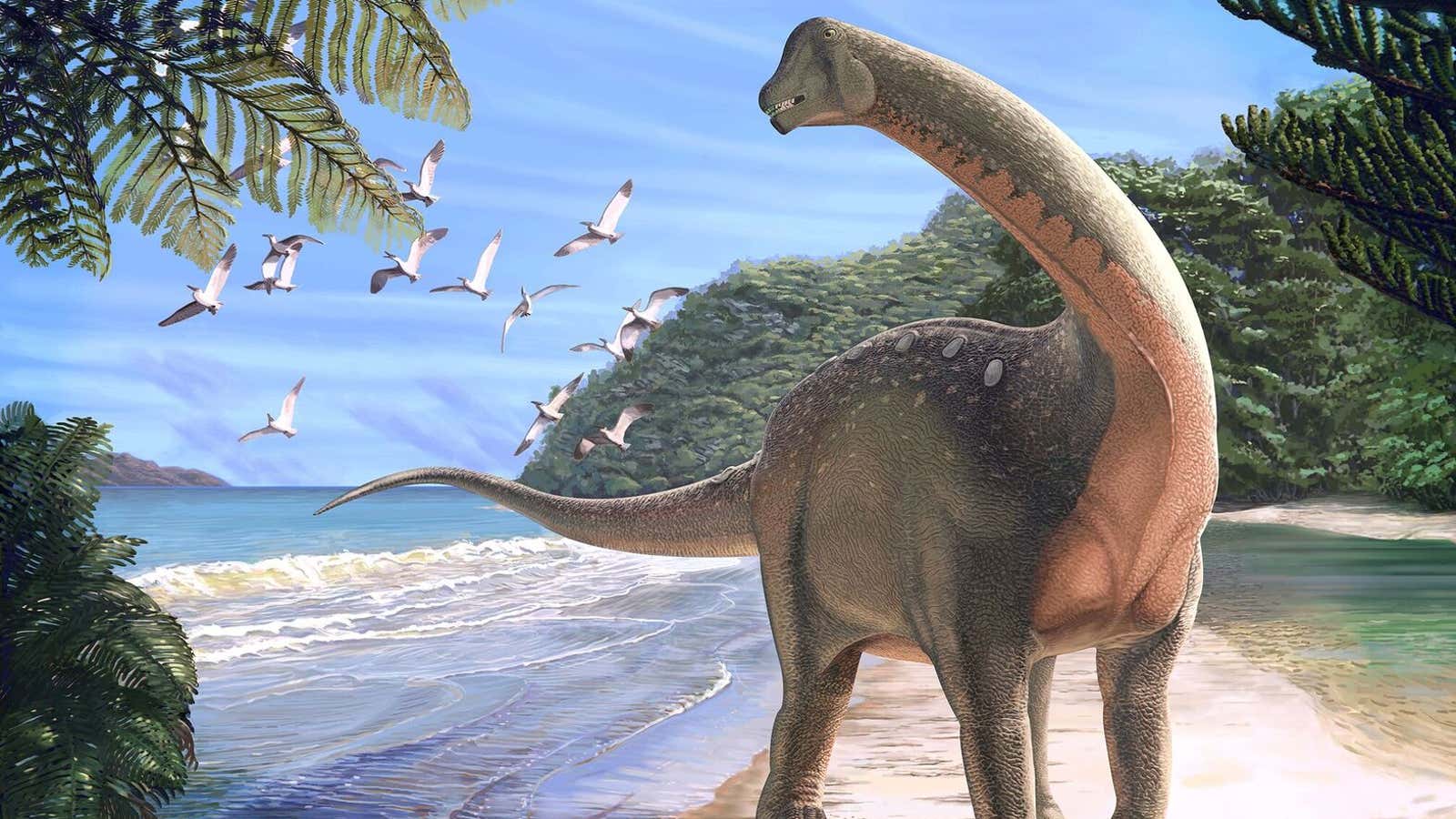Dinosaurs in North Africa were much more closely related to dinosaurs in Europe and Asia than those in southern part of the continent, according to a recent discovery of dinosaur fossil in the Sahara desert of Egypt. It is the first substantial dinosaur skeleton discovery from continental Africa for the time period of the last 30 million years of the age of the dinosaurs—which was about 96 to 66 million years ago.
Though the discovery was originally made in 2013, the dinosaur was officially named on Monday (Jan.30) in the journal Nature Ecology and Evolution. It was named Mansourasaurus after the Mansoura University Vertebrate Paleontology (MUVP) initiative, a wing at the Department of Geology at Mansoura University in Mansoura, Egypt, that oversaw the research under Dr Hesham Sallam.
The Mansourasaurus discovery indicates that at least some dinosaurs in Africa, right before dinosaurs went extinct, had close relatives on other continents, particularly Europe and Asia, says Matthew Lamanna, co-author of the study and paleontologist at Carnegie Museum of Natural History. The general notion to date has been that Africa had been cut off as a continent and thus its dinosaurs did not have a shared ancestry with those on other continents during this time period.
“We think that this relationship between this new Egyptian dinosaur and dinosaurs in Europe is a consequence of these animals’ ability to move back n forth…across present-day Mediterranean sea,” says Lamanna.
The discovery marks a significant step in paleontological research on the continent for this particular time period. In the northern hemisphere, dinosaurs from this time period were discovered in second half of the 19th century, meaning that it took researchers 150 years longer to trace dinosaur evolution in Africa.
“I think it has to do in large part with the fact that a lot of North Africa was under water towards the end of the age of dinosaurs,” says Lamanna. “So a lot of the rocks that might contain dinosaur fossils…were actually laid down in shallow seas. The rocks that yielded the Mansourasaurus skeleton are some of the only rocks that we know of in Africa at least from the end of the age of the dinosaurs that were deposited either on land or in a coastal environment.”
Correction: An earlier version of the article wrote the naming date to be Jan 30th.




